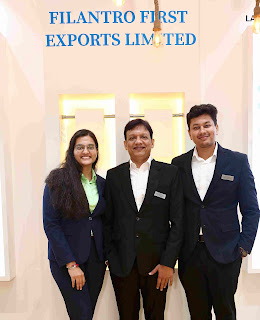The Future of Non-Woven Manufacturing: Innovations and Applications
Non-woven manufacturing is revolutionizing industries with its versatile applications and cost-effective solutions. From hygiene products to industrial materials, non-wovens have become an essential component in daily life. This blog explores the process of non-woven manufacturing, its benefits, and the industries it serves.
What is Non-Woven Manufacturing?
Non-woven manufacturing involves creating fabrics without traditional weaving or knitting. Instead, fibers are bonded together using mechanical, chemical, or thermal methods. This process produces lightweight, durable, and customizable materials tailored to specific needs.
The Process of Non-Woven Manufacturing
1. Fiber Selection: High-quality synthetic or natural fibers are chosen based on the intended application.
2. Web Formation: Fibers are laid out to form a web using techniques like carding or air-laid processes.
3. Bonding: The web is bonded through methods such as spunlace, thermal bonding, or chemical treatment.
4. Finishing: Additional processes like coating or embossing are applied to enhance the fabric's functionality.
Benefits of Non-Woven Fabrics
- Cost-Effective: Non-woven fabrics are produced efficiently, offering a budget-friendly option for businesses.
- Customizable: These fabrics can be tailored in terms of thickness, strength, and texture.
- Durable and Lightweight: Non-wovens are strong yet lightweight, making them suitable for diverse uses.
- Eco-Friendly Options: Many non-woven fabrics are recyclable or biodegradable, aligning with sustainability goals.
Applications of Non-Woven Fabrics
Non-woven fabrics find applications across numerous industries, including:
- Healthcare: Surgical masks, gowns, and disposable hygiene products.
- Automotive: Insulation and interior linings.
- Construction: Geotextiles for reinforcement and filtration.
- Consumer Goods: Cleaning wipes, bags, and packaging.
Innovations in Non-Woven Manufacturing
Advances in technology have brought significant improvements to non-woven manufacturing, including:
- Spunlace Technology: Producing soft, absorbent fabrics for hygiene and medical use.
- Recyclable Non-Wovens: Innovations in sustainable production are reducing environmental impact.
- Functional Coatings: Adding properties like water resistance or antimicrobial effects.
Why Choose Filantro First for Non-Woven Manufacturing?
Filantro First is a leader in non-woven manufacturing, offering high-quality solutions tailored to your needs. With a commitment to innovation and sustainability, we deliver products that meet the highest standards of performance and reliability.
Conclusion
Non-woven manufacturing continues to shape industries with its versatility and efficiency. As technology advances, the potential for innovative applications grows, making non-wovens a vital material for the future. Trust Filantro First for expert solutions in non-woven fabrics tailored to your business needs.

.jpeg)

.jpeg)
Comments
Post a Comment